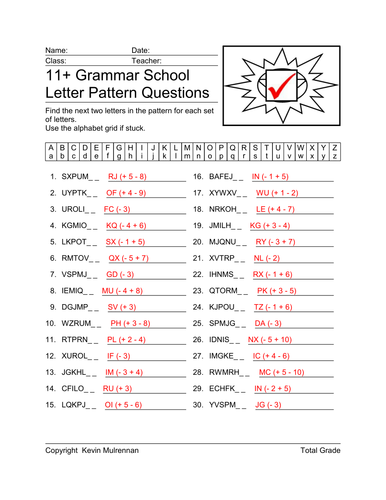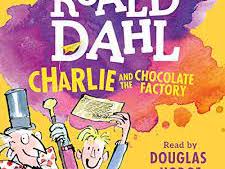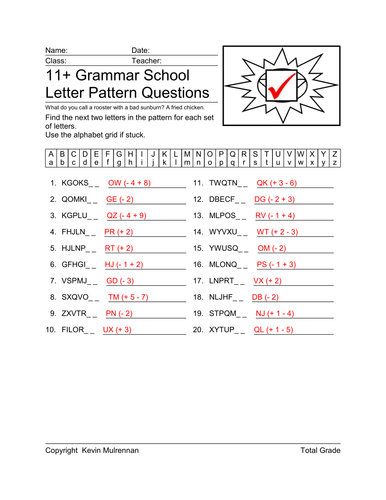403Uploads
117k+Views
38k+Downloads
All resources
Sale

Classic Narrative Poems Noyes Maggie and the Dinosaur Dave Ward The Works
Sample planning :
Genre: Poetry Unit 2 – Classic/Narrative poems.
Focus Texts: ‘The Highwayman’ by Alfred Noyes. ‘Maggie and the Dinosaur’ by Dave Ward.‘The Works’ (poetry anthology) by Paul Cookson. ‘The Puffin book of utterly brilliant poetry’ (Anthology) edited by Brian Patten.
Prepare to share a narrative poem from an anthology: Maggie & the Dinosaur, p463 in The Works by Paul Cookson.
Explain that an Anthology is a collection of poems specially chosen by a person: an anthologist.
Highlight that Narrative poems are poems which tell a story. Point out that not all narrative poems have the same structure although each poem will probably have its own! They often have many verses just like a song, with each verse telling the next part of the story.
Ask the children to respond to the narrative poem we shared. Which parts, lines & words did they enjoy the most? Did they like the way that the poem was read? Narrative poems are often long so they need to be read in a way that keeps the audience interested from start to finish. Just like a good story reader would make a story sound interesting.
Children to be split into mixed ability groups of four and given copies of two poems:
‘Dave Dirt’s Christmas presents’ and ‘GreedyGuts’ both by Kit Wright.
Ask the question: how can you be sure that you are looking at a narrative poem? They should decide which they would like to share with the class. How are they going to read it?
Altogether, in pairs, individually on rotation? Allow each group time & space to practice for presentation.
Groups to present their poems.
Other groups to offer constructive feedback.
Success Criteria:
I know that a narrative poem is one which tells a story.
I can contribute to a group activity, taking turns where necessary.
Sale

100 Worksheets Addition Maths Easy at Start Hard at the End
100 worksheets on addition.
I’ve used a nice big font.
They start off easy then get progressively harder.
Answer sheets provided for all worksheets.
Sale

Kindlekrax Teaching Materials and Planning Back to School Year 5 Literacy
Planning and worksheets.
Read chapter 3 and 4. Discuss the characters of Ruskin and Elvis. Do you like these characters? Explain. What do they look like? How do they move? Do they have friends/ family? What clothes do they wear? Discuss. Draw up a list of ideas.
Task: To compare the characters of Ruskin and Elvis supporting your description with evidence from the text. Children to describe each character and complete an illustration.
Children to check over their work and improve it. Discuss the comparisons they have made. Which character is the most interesting? Which do you like? Why?
Highlight the WALT. Read p.27 ‘The playground was made of asphalt that sparkled in the sunlight like crushed diamonds on black velvet.’
Describe your school using images like this.
The hall was…
My classroom was…
My teacher is…
Task: Write a character description of Ruskin using the three shot camera frame.
Model how to write the character description using the frame (use Elvis). Long shot, mid shot, close up and reveal.
Sale

Numeracy Maths Year 4 Planning Angles Protractors Perimeter Area
Some nice planning and worksheets for year 4.
Nearly 3 mb of stuff.
sample plannimng :
Draw rectangles and measure and calculate their perimeters; find the area of rectilinear shapes drawn on a square grid by counting square Perimeter, names of 2d shapes
Addition
Total
Mentally adding 4 numbers (single and two digit) WALT – draw find the perimeter and area of a rectangle
WILF – accurate measurements
Knowledge of what perimeter is
Knowing what area is and how to calculate
Good mental methods
Children will know how to find the perimeter of a rectangle. Pupils will also need to be reminded of units of measure that we may need to use – mm/cm.
Target maths P82 In real life situations, when would you need to know the perimeter of something? What unit of measurement might we need for the suggested things?
Sale

Roman Assembly Short Play History Key Stage 2
A short play on the Romans.
Great for a quick ten minute assembly or a part of a fun lesson.
Sale

Geography Lesson KS2 Mountains Avalanches Planning and worksheets
A nice little set of handouts and planning.
Suitable for about years 4 to 6.
Couple of nice powerpoints and worksheets.
Good for map work.
Find the countries.
Sale

Geography Journey of a River Powerpoints Worksheets Delta Tributary Year 5
Geography.
Suitable for roughly 9 to 11 year olds.
3 nice powerpoints.
7 nice word documents.
teaches all the basic vocabulary related to rivers.
Sale

11+ Verbal Reasoning Questions Letter Patterns Vol 2
Another 100 worksheets on volume 2. I've included more questions per sheet and for some I have omitted the alphabet grid. I have designed 100 worksheets on letter patterns for the 11+ non verbal reasoning questions. There are 100 worksheets provided on a cd. Letter patterns is an important aspect of the 11+ exams. Ideal for parents, pupils and tutors. Answer sheets provided. Introduce some logic and problem solving skills to students with the Letter Patterns worksheet. Sets of letters related in some way are displayed. Students must find the next two letters in the pattern for each set of letters. You can see an answer sheet in my picture with the answers in red.
Sale

Rounding Numbers 100 Worksheets with Answers Maths Mathematics
100worksheets on rounding numbers to the nearest 10 or 100.
Answer sheets provided.
20 questions per sheet.
A good time filler or easy homework.
Sale

Roald Dahl Charlie and the Chocolate Factory Write An Advert Persuasive
Some nice little lessons on the Road Dahl classic plus some great powerpoints.
sample :
Support for spelling
Count the syllables. CT will remind children what a syllable is and provide a list of words on the board. Children will count how many syllables there are and record on their whiteboards. CT will provide children with three types of chocolate (number 1, 2 and 3) and a blind fold. In pairs one child will be blindfolded and the other will pass the chocolate for the children to try.
Children will watch a clip of Willy Wonka from the film ‘Charlie and the Chocolate factory” CT will review the features of a formal letter:
Address in top write hand corner
Date (on left)
Greet using the persons formal title
Introduce yourself
State the reason you are writing
Lots of connectives
Persuasive techniques
Close the letter with ‘Yours Sincerely’
Formal language
Children will write a business letter to Mr Wonka persuading him to make their chocolate bar.
Sentence types
Children will work in pairs; one as an instructor and one as the listener.
instruct listener to walk to cone on playground.
Imperative verbs – CT will explain that children will have just used lots of imperative verbs which are ‘bossy verbs’.
CT will display sentences on the board and children will need to change them into an imperative sentence.
CT will display a set of instructions and children will suggest features including:
• A goal
• List of equipment
• Time connectives
• Present tense
• Imperative verbs
• Numbered steps
• Short, clear and direct sentences
• Picture of finished article
Children will then create a set of instructions for making the rocky road bites,
Sale

Healthy Eating Planning Powerpoints and Worksheets Physical Education Science Biology
My primary school planning for healthy eating.
Lots of powerpoints.
Plenty of material.
Can be adapted for different years but I mainiy taught year 5.
topics include
the circulatory system
healthy eating
keeping healthy
history of scurvy
smoking
pulse rate
you get 12 pdf files
15 powerpoints
Sale

Teaching Resources Worksheets Rounding Numbers to the Nearest Ten
100 worksheets with answers provided.
20 questions per sheet.
Pupils have to round numbers to the nearest 10.
I have included a few that you have to round to the nearest 100.
A good time filling exercise or a nice easy homework to reinforce what has been taught in the classroom.
Sale

Charlie and the Chocolate Factory Planning Roald Dahl Literacy
Three weeks great planning. Don’t expect lessons on Charlie. It’s report writing in English using Charlie with powerpoints etc
Great powerpoints
Zip file has more. I’ve put some example stuff on to give you a flavour.
Introduce the new unit and read the writing outcome with the children.
Complete a skills audit verbally. TTYP – what skills do you already have that will help you to achieve the outcome? What skills do you think you will need to revise? Are there any completely new skills you will need?
Introduce the focus text. We know a lot about Roald Dahl from our biography unit. Has anyone ever read ‘Charlie…’?
Seen the films?
Explain that we need to know the story line and the characters, so we are going to spend today’s lesson using the 2005 film as a visual text. The rest of the week will be spent comparing the visual text to the written text and completing various activities and pieces of writing.
Become familiar with the story by using a visual text.
Use both visual and written texts to analyse character and setting descriptions. Finish any of the DVD which we didn’t finish yesterday.
Use the written text to read the character descriptions of Charlie, his parents, grandparents and the four other winners of golden tickets.
Activity One
Come back together, discuss and put information on working wall.
Repeat with setting descriptions.
Look at a still of Charlie’s house from the film and read the setting description for it.
Look at the still from the ‘meadow’ in the chocolate factory and read the description on pages 87-90.
Activity Two
Revise features of journalistic writing.
Compose a newspaper article using the correct form and language.
Working in pairs, children to sketch a story mountain onto a whiteboard. Children to then summarise ‘Charlie…’ using one or two sentences for each section of the mountain.
Come back together and discuss.
Read chapter five of the text. What main event is happening? The announcement of the golden ticket competition.
Watch 14:28 – 15:44 – how does the film embellish the details given in the book?
Explain today’s task, you are a senior news reporter for the ‘International Herald’ a newspaper which is published in many different countries, many different languages all over the world. Your editor has asked you to write a newspaper article about this event. Your report will be published the day after Willy Wonka’s signs went up. You will be reporting on the competition, the prizes and the mania sweeping the world.
TTYP – what are main features of a journalistic piece of writing?
Come back together and list for the working wall:
Headline, paragraphs, subheadings, quotations, orientation, 5 ws, past tense, direct, formal, balanced etc.
Brainstorm some headlines for our article.
List the 5 Ws on the working wall.
Give each child a checklist and an inverted pyramid.
Sale

Charlie Small Gorilla City Literacy Planning Year 5
Some great planning for Charlie Small Gorilla City.
You get microsoft word documents.
Plus Notebook files if you can play those.
Sample :
LO:
I can investigate a character and list key questions.
Prior to lesson, create a display area in the class – or another area of the school – consisting of a copy of Charlie Small’s journal (see GORILLA CITY cover), photographs of settings and animals from the text, a map (copied from the book) and his rucksack. Also include a fact file on any 2 of the creatures mentioned in the text ~ e.g. the hyena or gorilla. The contents of his rucksack may be listed on cards; or some of the items actually on display.
TA or other adult in school to enquire about these items and chn asked to ‘investigate.’
Teacher/TA to read note from Charlie – see inside book cover.
In small groups, chn list questions they would like to ask the author – Charlie Small – and discuss what they would like to learn further about his expedition(s).
Class share ideas.
LO:
I can identify author style and purpose.
I can choose effective vocabulary to describe a character.
Explore the cover design and shared reading of the Publisher’s note, plus the note from Charlie.
Discuss the impact of the illustrations, writing style, the crinkled and stained journal entry by Charlie and use of words in capitals for emphasis.
With response partner, chn talk, then make notes on what they have learnt about Charlie from his opening note. * Have an outline of a silhouette on the wall to represent
Charlie.
Teacher or TA read pages 2-6.
In pairs, chn list some key words to describe Charlie’s personality, behaviour, likes and dislikes, based on what they have learnt so far. Ask them to select their most powerful adjective and write it on a Post-It note. Add these to the role on wall.
Extension: discuss the use and purpose of each item in the rucksack.
Sale

11+ Verbal Reasoning Questions Letter Patterns Vol 1
I have designed 100 worksheets on letter patterns for the 11+ non verbal reasoning questions. There are 100 worksheets. Letter patterns is an important aspect of the 11+ exams. Ideal for parents, pupils and tutors. Answer sheets provided. Introduce some logic and problem solving skills to students with the Letter Patterns worksheet. Sets of letters related in some way are displayed. Students must find the next two letters in the pattern for each set of letters. You can see an answer sheet in my picture with the answers in red.
Sale

Teaching Resources worksheets Shapes Maths Triangles Octagons
I have designed 100 worksheets on shapes for primary school children. They have to write the name of the shape on the sheet. An answer sheet is in the picture. A great reinforcement exercise or you can give a sheet to a bright pupil to keep them occupied. You can use your professional judgement to choose the appropriate sheet. Answer sheets are provided for all worksheets.
Sale

Division Worksheets for Primary School Children Maths Mathematics Homework
100 worksheets with answers sheets provided.
100 sheets of division questions.
Some have 10 questions, some 20, some 50.
A useful time filler or use them for a quick homework or start of day activity.
Sale

Number Order 100 Worksheets with Answers Maths Mathematics KS1
100 worksheets with answers on Number Order.
Pupils have to put the numbers in the correct order.
There are at least 10 sets of numbers per sheet.
A nice little time filler.
Sale

Teaching Resources worksheets Area Perimeter Mathematics
I have designed 100 worksheets on calculating area and perimeter for primary school children. There is a wide variety of difficulty. Some sheets just require area, some perimeter, some a mixture of the two. In some rectangles are used, others have triangles. You can use your professional judgement to choose the appropriate sheet. Answer sheets are provided for all worksheets.




















